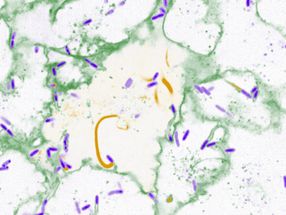EU funded systems biology consortium for adipositas induced type-2 diabetes reports first results
SysProt reports identification of a novel regulatory protein that appears to be involved in the development of obesity-induced type-2 diabetes in a mouse model for the human metabolic syndrome. The systems biology project SysProt (System-wide analysis and modelling of protein modification) develops and applies novel technologies to gain insight into the onset and progression of adipositas induced type II diabetes one of the major health challenges in modern societies. The research consortium consists of one SME and four academic institutions renowned for their expertise in systems biology, proteomics and diabetes research from three European countries: the German biotech company MicroDiscovery, the German Institute of Human Nutrition, the functional genomics Center Zurich, The BioCentre - University of Reading and the Max-Planck Institute for Molecular Genetics.
The strategy to achieve SysProts objective is an innovative, explorative systems biology approach, both on the molecular and physiological level with a strong focus on protein function and modification. The project is producing high quality proteomics data indispensable for the identification of novel circulating protein factors and posttranslational protein modifications that are important for the onset, dynamics and progression of adipositas and type II diabetes. Data generation is complemented by the development of computational analysis methods for these novel data types and creation of an adequate modelling technology. Recently the pharmaceutical company Pfizer has launched a comparable US$ 14-million systems-biology consortium to improve the understanding of diabetes and obesity.
Most read news
Topics
Organizations
Other news from the department science

Get the life science industry in your inbox
From now on, don't miss a thing: Our newsletter for biotechnology, pharma and life sciences brings you up to date every Tuesday and Thursday. The latest industry news, product highlights and innovations - compact and easy to understand in your inbox. Researched by us so you don't have to.























































